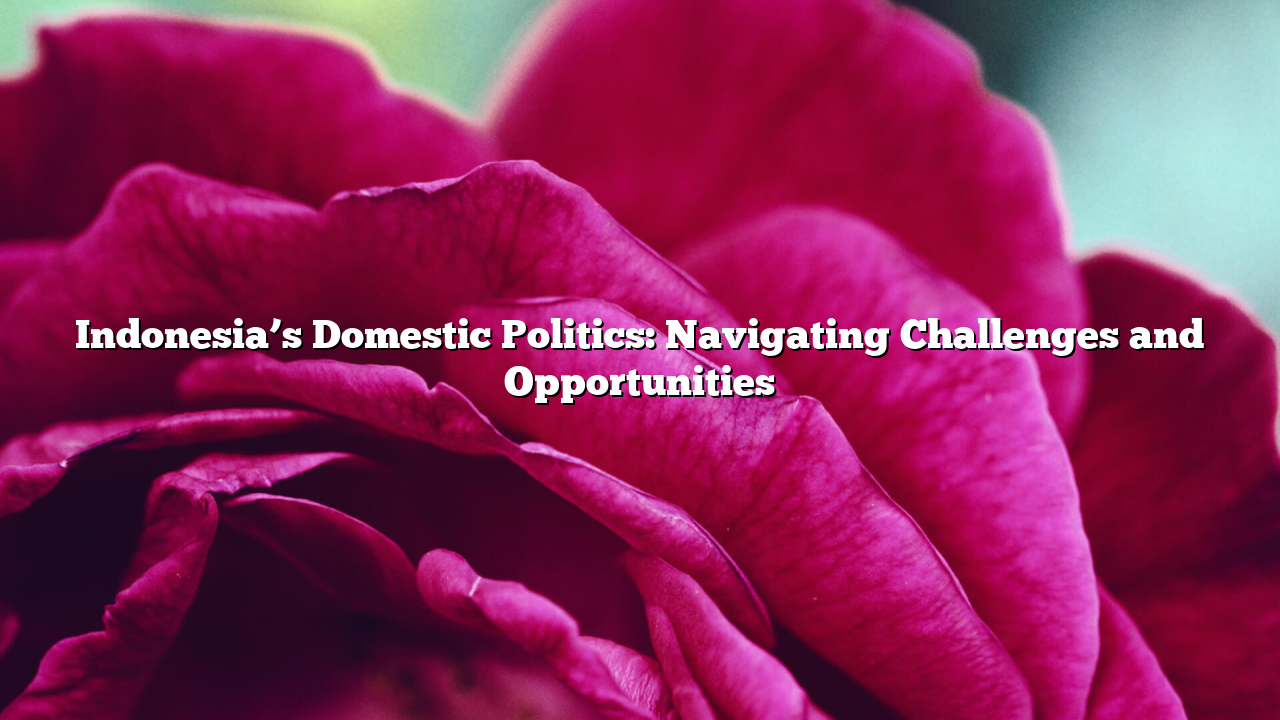Indonesia, the world’s third-largest democracy, continues to experience dynamic shifts in its domestic political landscape. With over 270 million citizens and a diverse archipelago of thousands of islands, the country’s political decisions have far-reaching implications for governance, stability, and development. In recent years, debates about leadership transitions, economic policies, and social issues maritim4d have defined Indonesia’s internal political discourse.
One of the most significant aspects of Indonesia’s domestic politics is the ongoing debate over how to balance democracy with stability. Since the fall of the Suharto regime in 1998, the nation has worked diligently to strengthen democratic institutions. Free elections, competitive political parties, and active civil society groups have made Indonesian democracy vibrant. Yet, the political system often faces challenges such as corruption, patronage networks, and weak enforcement of laws. These issues test the credibility of political leaders and institutions, raising questions about how Indonesia can ensure both accountability and efficiency in governance.
The recent general elections highlighted both the strengths and weaknesses of the democratic process. On one hand, voter participation remained high, reflecting the public’s trust in democracy. On the other hand, polarization among political parties and supporters underscored divisions in society. Social media has amplified these divisions, providing platforms for political expression but also enabling the spread of disinformation. The government has tried to regulate digital platforms, yet striking a balance between freedom of speech and maintaining social harmony remains a delicate task.
Another crucial theme in domestic politics is economic governance. Indonesia is a resource-rich country with strong potential for industrial and technological development. Political leaders consistently emphasize economic growth, job creation, and investment opportunities. However, inequality between urban and rural areas, as well as uneven access to education and healthcare, continues to fuel public debates. Political parties are often judged on their ability to implement inclusive policies that benefit not only the elite but also marginalized communities.
In addition, decentralization plays a unique role in shaping Indonesia’s domestic politics. Since regional autonomy was introduced, local governments have gained significant authority in managing budgets and development programs. This has allowed regions to tailor policies to local needs, but it has also created new challenges, including variations in governance quality and cases of corruption at the local level. Ensuring that decentralization strengthens rather than weakens the state remains a key task for future administrations.
Social issues also strongly influence political debates. Religion, culture, and national identity are sensitive topics that frequently shape public opinion and policymaking. Indonesia, with its principle of “Unity in Diversity” (Bhinneka Tunggal Ika), has long sought to maintain harmony among its various ethnic and religious groups. Political actors sometimes exploit these identities for short-term electoral gains, but this strategy risks deepening divisions in society. The challenge for Indonesia’s domestic politics is to foster inclusivity and tolerance while preventing sectarian conflicts.
Another area of concern is environmental policy. With deforestation, climate change, and natural disasters affecting millions, environmental issues have become political priorities. Citizens increasingly demand sustainable practices and accountability from both government and corporations. Political leaders are pressured to balance economic development, such as infrastructure expansion and mining, with environmental protection. The outcome of these debates will shape Indonesia’s global image as well as its domestic stability.
Looking forward, Indonesia’s domestic politics will be defined by how leaders address these intertwined issues. Leadership transitions are particularly important, as citizens expect fresh ideas and honest governance. Younger voters, who form a significant portion of the electorate, are pushing for more transparency, digital innovation, and sustainable development policies. Their influence could reshape the political agenda in years to come.
In conclusion, Indonesia’s domestic politics is a complex blend of democratic aspirations, economic challenges, social diversity, and environmental concerns. While the nation has made remarkable progress since the Reformasi era, its political system must continue evolving to meet the needs of its people. The ability of political leaders to balance competing interests while upholding democratic values will determine whether Indonesia can sustain stability and progress in the decades ahead.
